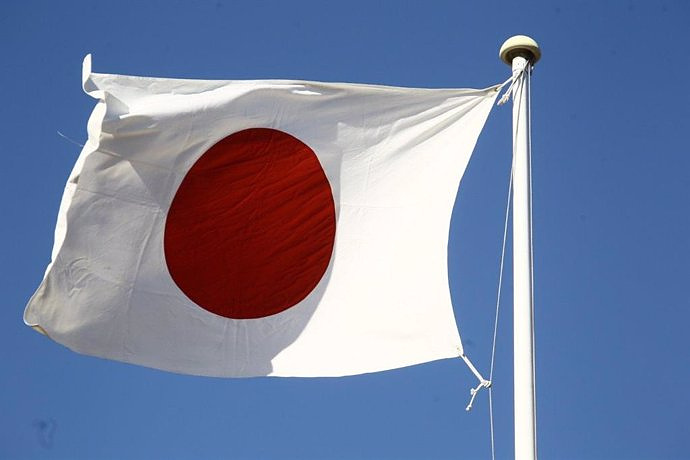MADRID, 27 Mar. (EUROPA PRESS) -
The price of the yen against the dollar fell momentarily this Wednesday to its lowest level in almost 34 years, despite the fact that the Bank of Japan carried out its first interest rate increase in 17 years a week ago, which has led the Japanese Government to express its concern about the devaluation of the currency, as well as its willingness to adopt "decisive" measures.
In statements to the press, the Japanese Minister of Finance, Shunichi Suzuki, admitted "a high degree of nervousness" regarding the situation in the foreign exchange market. "We want to take decisive measures against excessive movements without excluding all options," said the minister.
Suzuki's comments, which evoke Tokyo's stance ahead of the fall 2022 intervention in the markets, came after the dollar's exchange rate against the yen reached an intraday high of 151 in today's session. .97 yen, the worst crossing of the Japanese currency against the 'greenback' since July 1990, although after the minister's statements it recovered some ground and stabilized at 151.7 yen per dollar.
Likewise, in an intervention by the governor of the Bank of Japan, Kazuo Ueda, before the Committee on Finance and Financial Services of the House of Representatives, the central banker recalled that monetary policy "does not directly control exchange rates," although he admitted that These are a factor with an important impact on the economy and prices.
"The Bank of Japan, in close cooperation with the Government, will continue to pay close attention to trends in the foreign exchange market and the impact on the economy and prices," he added, according to the Japanese network NHK.
The weakening of the yen occurs despite the fact that the Bank of Japan decided a week ago to make a historic turn in its monetary policy by announcing the first increase in the price of money in 17 years, thus ending the era of negative rates in which the institution entered into in 2016, thus becoming the last central bank in the world to close this monetary chapter.
At its last meeting, the Bank of Japan's Policy Council decided to raise the reference rate to a range of 0% to 0.1% in what is the first increase in the country's interest rates since 2007, in addition to putting also end control over the yield curve of Japan's ten-year sovereign bonds, another measure implemented since 2016 within the framework of its quantitative and qualitative easing (QQE) policy, which according to the entity "has fulfilled its function."
Despite this historic rate hike, the Bank of Japan then stressed that, given the current outlook for economic activity and prices, it anticipates that accommodative financial conditions will remain for the time being, suggesting that it is in no rush to continue tightening its monetary policy.

 Exploring Cardano: Inner Workings and Advantages of this Cryptocurrency
Exploring Cardano: Inner Workings and Advantages of this Cryptocurrency Seville.- Economy.- Innova.- STSA inaugurates its new painting and sealing hangar in San Pablo, for 18 million
Seville.- Economy.- Innova.- STSA inaugurates its new painting and sealing hangar in San Pablo, for 18 million Innova.- More than 300 volunteers join the Andalucía Compromiso Digital network in one month to facilitate access to ICT
Innova.- More than 300 volunteers join the Andalucía Compromiso Digital network in one month to facilitate access to ICT Innova.-AMP.- Ayesa acquires 51% of Sadiel, which will create new technological engineering products and expand markets
Innova.-AMP.- Ayesa acquires 51% of Sadiel, which will create new technological engineering products and expand markets STATEMENT: ELFBAR and LOST MARY reveal progress in the fight against illicit vapers (1)
STATEMENT: ELFBAR and LOST MARY reveal progress in the fight against illicit vapers (1) STATEMENT: ELFBAR and LOST MARY reveal progress in the fight against illicit vapers (2)
STATEMENT: ELFBAR and LOST MARY reveal progress in the fight against illicit vapers (2) The PSOE is holding a Federal Committee this Saturday that will serve to close ranks with Sánchez so that he does not resign
The PSOE is holding a Federal Committee this Saturday that will serve to close ranks with Sánchez so that he does not resign The Ibex 35 closes the week at its highest since 2015 and is already looking at 11,200
The Ibex 35 closes the week at its highest since 2015 and is already looking at 11,200 How Blockchain in being used to shape the future
How Blockchain in being used to shape the future Not just BTC and ETH: Here Are Some More Interesting Coins Worth Focusing on
Not just BTC and ETH: Here Are Some More Interesting Coins Worth Focusing on UPV students build a prototype of a wooden house to move to Equatorial Guinea
UPV students build a prototype of a wooden house to move to Equatorial Guinea The UA opens the call for the Impulso 2024 Awards for the best innovative business initiatives
The UA opens the call for the Impulso 2024 Awards for the best innovative business initiatives ALI, virtual assistant from Alicante, internationally recognized by the OECD
ALI, virtual assistant from Alicante, internationally recognized by the OECD Retrópolis brings the golden age of video games and computing to the UPV
Retrópolis brings the golden age of video games and computing to the UPV A million people demonstrate in France against Macron's pension reform
A million people demonstrate in France against Macron's pension reform Russia launches several missiles against "critical infrastructure" in the city of Zaporizhia
Russia launches several missiles against "critical infrastructure" in the city of Zaporizhia A "procession" remembers the dead of the Calabria shipwreck as bodies continue to wash up on the shore
A "procession" remembers the dead of the Calabria shipwreck as bodies continue to wash up on the shore Prison sentences handed down for three prominent Hong Kong pro-democracy activists
Prison sentences handed down for three prominent Hong Kong pro-democracy activists ETH continues to leave trading platforms, Ethereum balance on exchanges lowest in 3 years
ETH continues to leave trading platforms, Ethereum balance on exchanges lowest in 3 years Investors invest $450 million in Consensys, Ethereum incubator now valued at $7 billion
Investors invest $450 million in Consensys, Ethereum incubator now valued at $7 billion Alchemy Integrates Ethereum L2 Product Starknet to Enhance Web3 Scalability at a Price 100x Lower Than L1 Fees
Alchemy Integrates Ethereum L2 Product Starknet to Enhance Web3 Scalability at a Price 100x Lower Than L1 Fees Mining Report: Bitcoin's Electricity Consumption Declines by 25% in Q1 2022
Mining Report: Bitcoin's Electricity Consumption Declines by 25% in Q1 2022 Oil-to-Bitcoin Mining Firm Crusoe Energy Systems Raised $505 Million
Oil-to-Bitcoin Mining Firm Crusoe Energy Systems Raised $505 Million Microbt reveals the latest Bitcoin mining rigs -- Machines produce up to 126 TH/s with custom 5nm chip design
Microbt reveals the latest Bitcoin mining rigs -- Machines produce up to 126 TH/s with custom 5nm chip design Bitcoin's Mining Difficulty Hits a Lifetime High, With More Than 90% of BTC Supply Issued
Bitcoin's Mining Difficulty Hits a Lifetime High, With More Than 90% of BTC Supply Issued The Biggest Movers are Near, EOS, and RUNE during Friday's Selloff
The Biggest Movers are Near, EOS, and RUNE during Friday's Selloff Global Markets Spooked by a Hawkish Fed and Covid, Stocks and Crypto Gain After Musk Buys Twitter
Global Markets Spooked by a Hawkish Fed and Covid, Stocks and Crypto Gain After Musk Buys Twitter Bitso to offset carbon emissions from the Trading Platform's ERC20, ETH, and BTC Transactions
Bitso to offset carbon emissions from the Trading Platform's ERC20, ETH, and BTC Transactions Draftkings Announces 2022 College Hoops NFT Selection for March Madness
Draftkings Announces 2022 College Hoops NFT Selection for March Madness























